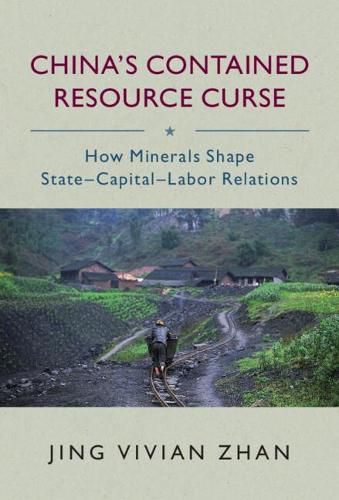Readings Newsletter
Become a Readings Member to make your shopping experience even easier.
Sign in or sign up for free!
You’re not far away from qualifying for FREE standard shipping within Australia
You’ve qualified for FREE standard shipping within Australia
The cart is loading…






As a country rich in mineral resources, contemporary China remains surprisingly overlooked in the research about the much debated ‘resource curse’. This is the first full-length study to examine the distinctive effects of mineral resources on the state, capital and labour and their interrelations in China. Jing Vivian Zhan draws on a wealth of empirical evidence, both qualitative and quantitative. Taking a subnational approach, she zooms in on local situations and demonstrates how mineral resources affect local governance and economic as well as human development. Characterizing mining industries as pro-capital and anti-labour, this study also highlights the redistributive roles that the state can play to redress the imbalance. It reveals the Chinese state’s strategies to contain the resource curse and also pinpoints some pitfalls of the China model, which offer important policy implications for China and other resource-rich countries.
$9.00 standard shipping within Australia
FREE standard shipping within Australia for orders over $100.00
Express & International shipping calculated at checkout
As a country rich in mineral resources, contemporary China remains surprisingly overlooked in the research about the much debated ‘resource curse’. This is the first full-length study to examine the distinctive effects of mineral resources on the state, capital and labour and their interrelations in China. Jing Vivian Zhan draws on a wealth of empirical evidence, both qualitative and quantitative. Taking a subnational approach, she zooms in on local situations and demonstrates how mineral resources affect local governance and economic as well as human development. Characterizing mining industries as pro-capital and anti-labour, this study also highlights the redistributive roles that the state can play to redress the imbalance. It reveals the Chinese state’s strategies to contain the resource curse and also pinpoints some pitfalls of the China model, which offer important policy implications for China and other resource-rich countries.